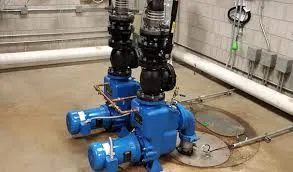Indonesian
- Afrikaans
- Albanian
- Amharic
- Arabic
- Armenian
- Azerbaijani
- Basque
- Belarusian
- Bengali
- Bosnian
- Bulgarian
- Catalan
- Cebuano
- Corsican
- Croatian
- Czech
- Danish
- Dutch
- English
- Esperanto
- Estonian
- Finnish
- French
- Frisian
- Galician
- Georgian
- German
- Greek
- Gujarati
- Haitian Creole
- hausa
- hawaiian
- Hebrew
- Hindi
- Miao
- Hungarian
- Icelandic
- igbo
- Indonesian
- irish
- Italian
- Japanese
- Javanese
- Kannada
- kazakh
- Khmer
- Rwandese
- Korean
- Kurdish
- Kyrgyz
- Lao
- Latin
- Latvian
- Lithuanian
- Luxembourgish
- Macedonian
- Malgashi
- Malay
- Malayalam
- Maltese
- Maori
- Marathi
- Mongolian
- Myanmar
- Nepali
- Norwegian
- Norwegian
- Occitan
- Pashto
- Persian
- Polish
- Portuguese
- Punjabi
- Romanian
- Russian
- Samoan
- Scottish Gaelic
- Serbian
- Sesotho
- Shona
- Sindhi
- Sinhala
- Slovak
- Slovenian
- Somali
- Spanish
- Sundanese
- Swahili
- Swedish
- Tagalog
- Tajik
- Tamil
- Tatar
- Telugu
- Thai
- Turkish
- Turkmen
- Ukrainian
- Urdu
- Uighur
- Uzbek
- Vietnamese
- Welsh
- Bantu
- Yiddish
- Yoruba
- Zulu
Telephone: +86 13120555503
Email: frank@cypump.com
Okt . 22, 2024 10:16 Back to list
sewage and effluent pumps
Sewage and Effluent Pumps Essential Components of Wastewater Management
Sewage and effluent pumps play a crucial role in the effective management of wastewater systems. As urban populations grow and environmental regulations become stricter, the need for reliable and efficient pumping solutions for sewage and effluent has never been more critical. Understanding the types, uses, and benefits of these pumps is essential for anyone involved in wastewater management.
Sewage pumps are specifically designed to handle the transport of sewage — a mixture of water and waste materials. These pumps typically feature a powerful motor and a robust impeller to manage solids and debris, which makes them ideal for applications where solid waste must be removed and moved to treatment facilities. On the other hand, effluent pumps handle liquid waste that has already been treated to some extent, and it often contains fewer solids. They are used to transfer effluent from septic tanks to drain fields or treatment plants, ensuring it is properly disposed of without causing harm to the environment.
One of the key characteristics to consider when choosing a sewage or effluent pump is the pump's motor type. Equipment can be equipped with either submersible or non-submersible motors. Submersible pumps operate underwater, making them a great option for deep pits where sewage is collected. This design helps prevent issues associated with flooding, as the motor remains protected within the pump housing. Non-submersible pumps, conversely, are often placed above the ground and can be simpler to maintain, but they may require additional piping and features to prevent flooding.
sewage and effluent pumps

Efficiency and energy consumption are paramount considerations with sewage and effluent pumps
. Modern pumps are often designed with energy-efficient motors that not only lower electricity costs but also reduce greenhouse gas emissions. The use of advanced technology, such as variable frequency drives (VFD), has made it possible to optimize pump operation based on demand, further enhancing energy savings and extending pump lifespan.Maintaining sewage and effluent pumps is vital for ensuring reliable operation. Regular inspections can help detect issues before they lead to pump failure. Key maintenance tasks include checking for clogs, listening for unusual noises, and ensuring seals and bearings are in good condition. By ensuring pumps are well-maintained, facilities can prevent costly downtimes and environmental incidents.
In conclusion, sewage and effluent pumps are indispensable in modern wastewater management. They facilitate the safe and efficient movement of wastewater, protecting public health and the environment. With the ongoing advancements in pump technology and heightened awareness about environmental sustainability, these pumps will continue to evolve, ultimately playing an even more significant role in ensuring our waste management systems remain effective and resilient.
-
High-Performance Air Pumps for Sand & Gravel | Efficient Transport
NewsAug.03,2025
-
ISG Series Vertical Pipeline Pump - Chi Yuan Pumps Co., LTD.|Energy Efficiency, Corrosion Resistance
NewsAug.03,2025
-
ISG Series Pipeline Pump - Chi Yuan Pumps | Energy Efficiency&Compact Design
NewsAug.03,2025
-
ISG Series Vertical Pipeline Pump - Chi Yuan Pumps Co., LTD.|High Efficiency, Low Noise, Durable
NewsAug.02,2025
-
ISG Series Vertical Pipeline Pump - Chi Yuan Pumps | High Efficiency, Low Noise
NewsAug.02,2025
-
ISG Series Vertical Pipeline Pump- Chi Yuan Pumps Co., LTD.|High Efficiency&Compact Design
NewsAug.02,2025










